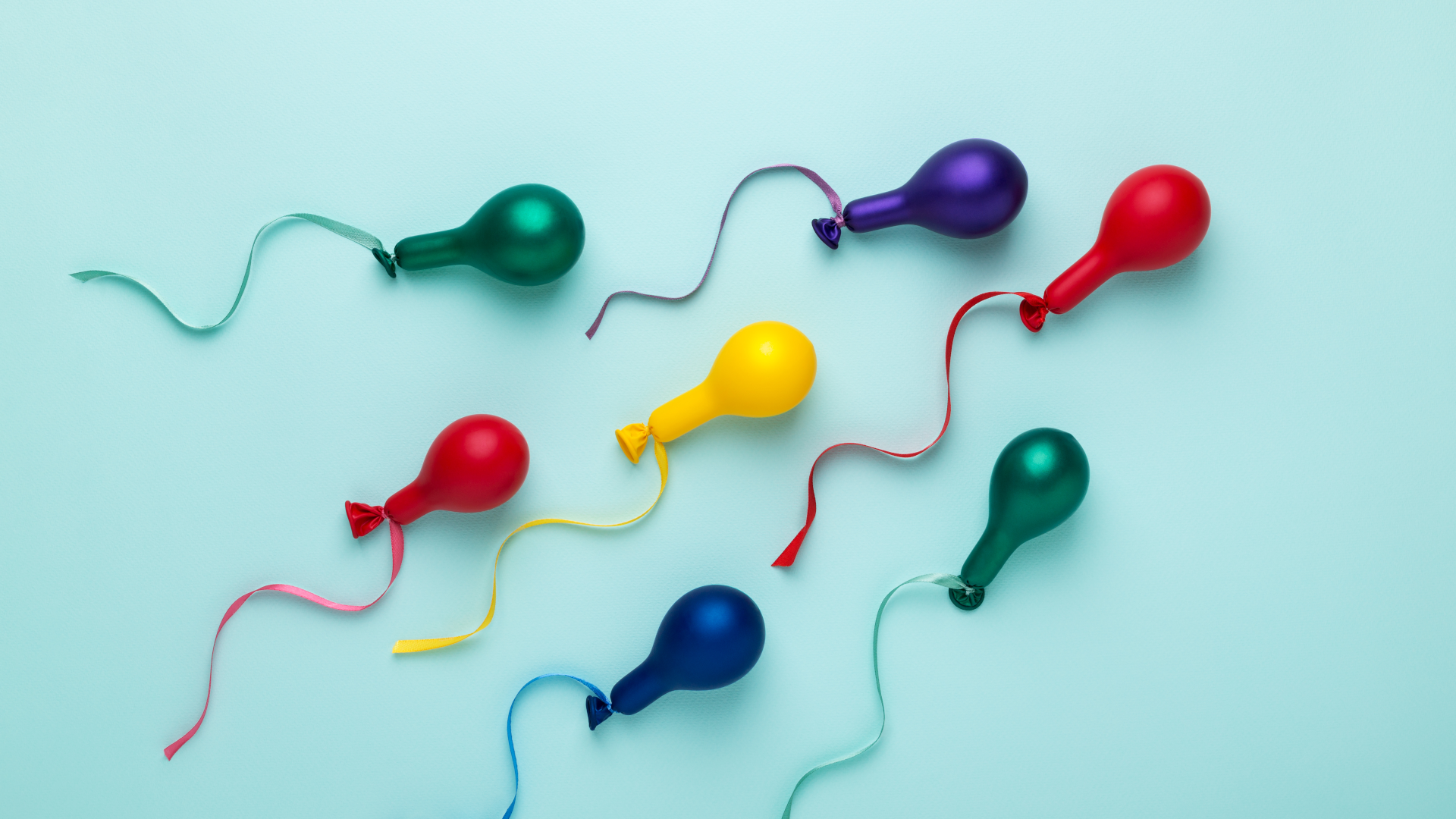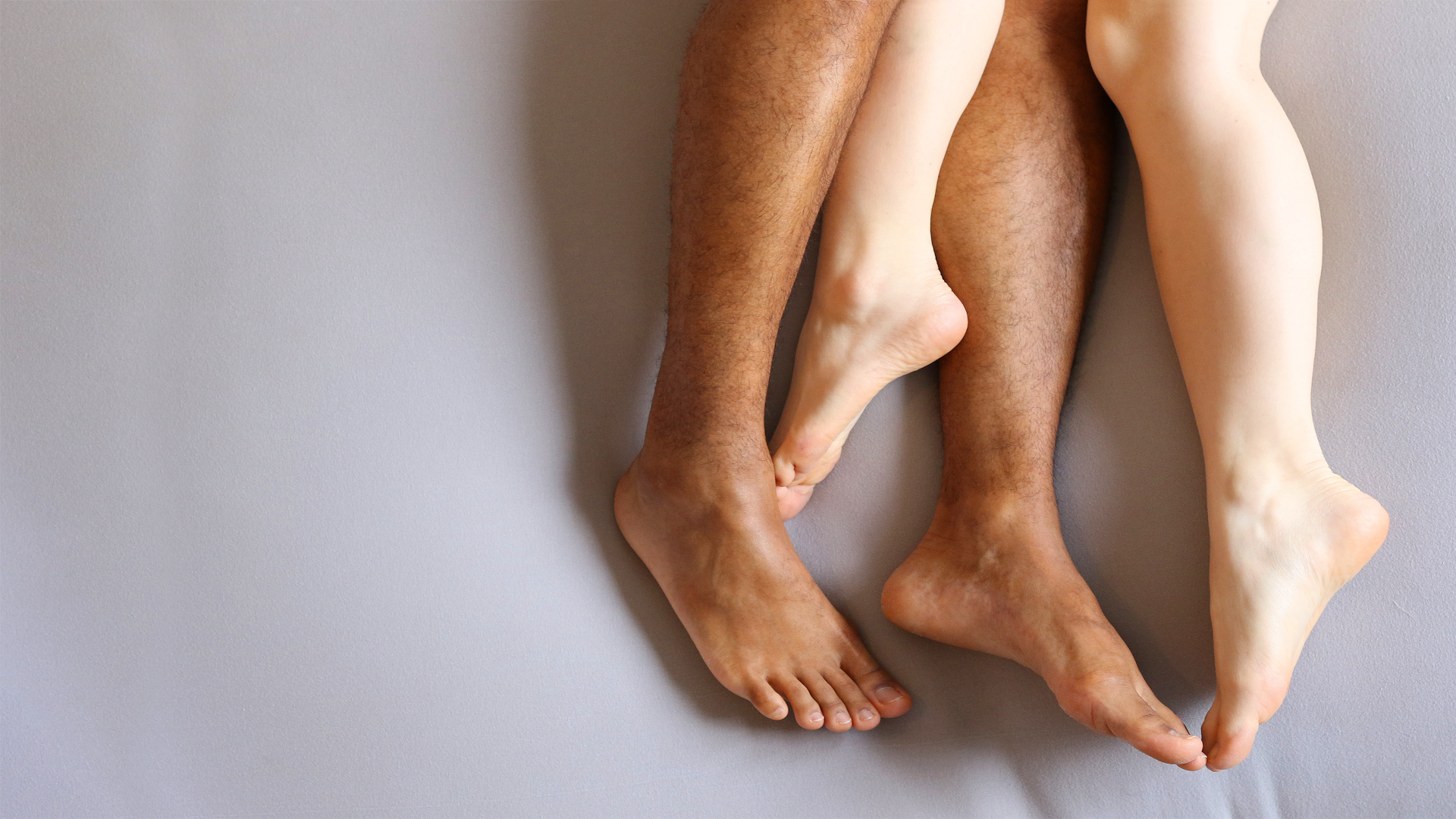Supercharge your day |
It’s a topic that isn’t discussed enough, but one that is important to talk about—male sex hormone imbalances and the disorders that can happen as a result.
Understanding the intricate interplay of sex hormones in our bodies is essential to our overall wellbeing now and in the future. So here, we’re going to get down to business.
We’ll cover actionable ways you can improve your sex hormone balance and give some scientifically backed advice on how to lead a healthier life in general.
Let’s dive in.
What important sex hormones are in males
Sex hormones play a huge role in male health. Hormonal imbalances can lead to various disorders that can impact physical and mental health.
Let’s get ahead by understanding the different types of sex hormones and their roles within the body.
Testosterone
This is one of the most well-known and critical sex hormones in males—it gets the most coverage.
This hormone is produced mainly in the testes and plays an important role in the development and functioning of various male characteristics.
‘T’ is also responsible for the growth and maintenance of muscle mass, bone density, and body hair.
It also influences sexual desire (libido), sperm production, and contributes to your vitality and general wellbeing. It’s a big player.
The science behind testosterone
Studies show that testosterone plays a role in maintaining cardiovascular health, cognitive function, and mood regulation.
One study showed that testosterone replacement therapy may improve cognitive function in older men.
Plus, testosterone has been shown to have antidepressant effects in men with depression.
Dihydrotestosterone (DHT)
Dihydrotestosterone, or DHT, is a potent derivative of testosterone that is formed in certain tissues through the action of an enzyme called 5-alpha-reductase.
It’s mainly involved in the development and maintenance of male secondary sexual characteristics, like facial and body hair growth, deepening of the voice, and the enlargement of the prostate gland.
It’s also essential for the growth and maturation of the male external genitalia during fetal development.
DHT is also linked to male pattern baldness and its implications for hair follicle growth and function.
The science behind DHT
Several studies have explored the effects of DHT on sexual characteristics.
A clinical biochemistry study published in the SAGE Journals indicated that DHT is involved in the sexual differentiation of organs and is necessary for the development of male external genitalia.
Another study highlighted that DHT promotes prostate growth, sebaceous gland activity, male pattern baldness, and body, facial, and pubic hair growth.
You might think it’s testosterone that is responsible for the development and maintenance of male sexual characteristics, but it’s actually DHT.
Luteinizing hormone (LH)
While not a sex hormone itself, luteinizing hormone (LH) helps to regulate testosterone production—so we’re going to list it here.
Secreted by the pituitary gland, LH activates the Leydig cells in the testes and stimulates the production of testosterone, which is vital for the growth and maturation of sperm cells.
LH levels fluctuate throughout the day and are influenced by factors such as age, stress, exercise, and sleep patterns.
Keeping track of LH levels can provide valuable insights into the functioning of the hypothalamic-pituitary-gonadal axis and help diagnose potential hormonal imbalances.
The science behind LH
One study found that higher LH levels were associated with a decreased risk of erectile dysfunction in men.
LH has also been investigated in the context of male infertility. Research indicates that high or low LH levels may contribute to infertility by impacting testosterone production.
Follicle-stimulating hormone (FSH)
You probably haven’t heard of this one or if you have it may be due to its usual association with female reproductive function. But it also plays a role in male fertility.
It plays a key part in sexual development and reproduction by affecting the function of the ovaries and testes. FSH works in tandem with luteinizing hormone (LH) to regulate the menstrual cycle in females and sperm production in males.
In males, FSH stimulates the Sertoli cells in the testes to promote the maturation of sperm.
FSH levels are clinically relevant and important to know as they can indicate underlying reproductive issues. Low FSH levels in men may indicate impaired sperm production
FSH levels may be monitored in infertility treatment as part of follicular stimulation procedures.

What disorders can happen because of low hormones?
Hormones play an important role in the proper functioning of the male body, regulating a range of processes and maintaining health overall.
Fact: When hormone levels dip below normal ranges, they can lead to a range of disorders and health conditions.
These can be both physiological and psychological, as they may have an impact on each other.
Let’s take a look at the disorders that can occur due to low hormone levels and discuss the associated causes and symptoms.
Hypothyroidism
Hypothyroidism happens when the thyroid gland does not produce enough thyroid hormones (T3 and T4).
This condition affects the body's metabolism, energy levels, and hormone balance in the body.
The symptoms of hypothyroidism…
- Fatigue and weakness.
- Unexplained weight gain.
- Cold intolerance.
- Dry skin and brittle hair.
- Depression and mood changes.
- Constipation.
- Muscle aches and joint pain.
- Decreased sexual drive and erectile dysfunction.
- Infertility and decreased sperm count
The realities of hypothyroidism…
Reduced metabolism
A reduced metabolism can possibly lead to weight gain and difficulties in losing weight.
Cardiac changes
Another result of hypothyroidism can be a slow heart rate and impaired heart function.
Bad digestion
Constipation and poor nutrient absorption can result from this disorder.
Negative mental state
This disorder can also result in poor mental health and low mood.
Hypogonadism

Hypogonadism is a condition where the sex glands (ovaries in females or testes in males) don't work properly, which leads to a lack of sex hormones being produced.
In men, hypogonadism is often linked to an imbalance in male sex hormones, especially testosterone.
Testosterone, the main male sex hormone, is responsible for the development and upkeep of male reproductive tissues, as well as secondary sexual traits like muscle mass, facial hair growth, and deepening of the voice.
When it comes to hypogonadism, there is a deficiency in testosterone production or its action, leading to the symptoms below.
The symptoms of hypogonadism…
- Low libido
- Erectile dysfunction
- Fatigue
- Depression
- Decreased muscle mass
- Increased body fat: Accumulation of excess body fat, particularly around the waist area
The realities of hypogonadism…
Disruption of sexual function
Low testosterone levels can lead to lower sex drive, erectile dysfunction, and fertility issues.
Altered mood
Hormonal imbalances can affect your mood, leading to symptoms of depression, impacting your quality of life as a result.
Muscular and skeletal changes
Reduced muscle mass and strength can impact your physical performance and increase the risk of fractures.
Metabolic effects
Low sex hormone levels may result in increased body fat and the development of metabolic disorders like insulin resistance and dyslipidemia.
Andropause
Andropause, sometimes referred to as "male menopause," occurs due to a decline in testosterone levels with age.
The symptoms of andropause…
- Fatigue
- Mood changes
- Decreased libido
- Weight gain
- Decreased muscle mass
- Decreased cognitive function
The realities of andropause…
Low energy
A decrease in energy levels can cause you to feel constantly fatigued, struggling to get things done in the process.
Mood swings
Hormonal changes during andropause can contribute to mood swings, irritability, and feelings of sadness or depression.
Strained sexual health
People with this condition might experience decreased libido and potential erectile dysfunction.
Reduced brain function
Some men may experience a decline in mental sharpness, memory problems, and difficulty concentrating during andropause.
Adrenal Fatigue
Did you know? Low levels of cortisol, the stress hormone, can lead to adrenal fatigue.
The symptoms of adrenal fatigue…
- Constant tiredness
- Body aches
- Low blood pressure
- Decreased sex drive
The realities of adrenal fatigue…
Energy levels
Adrenal fatigue can have an impact on your energy levels, stress response, and your overall well-being day to day.
Hormonal imbalance
Imbalances in hormones such as testosterone can cause quite a few symptoms in men, like decreased body hair, erectile dysfunction, loss of interest in sex, and enlarged breast tissue — a condition known as gynecomastia (or ‘man boobs’).
Hormonal imbalances have a knock-on effect when it comes to your health and happiness, especially when it comes to unwanted physical changes.

How can you rebalance your sex hormone levels?
GOOD NEWS!
There are plenty of ways to get your levels back on track. And there are some things you can even start today.
These changes make way for a better sex hormone balance and a healthier you, so look at it as a lifestyle change that you can control.
While the specific approach to improving your levels may vary based on the underlying hormone imbalance and your specific circumstances—there are some general strategies that can help.
Diet
You knew this one would be in here, right?
Following a balanced diet that includes essential nutrients can support hormone production and regulation.
Try some of these quick-to-do strategies for food to promote healthier hormone levels.
- Get your daily fill of protein. This is important for hormone synthesis. Include sources like lean meats, poultry, fish, eggs, dairy products, and plant-based options like legumes and tofu.
- Eat those healthy fats. Eating the right kinds of fat can aid in hormone production. Good sources include fatty fish (like salmon and mackerel), nuts, seeds, and avocados.
- Remember, fiber is your friend. A fiber-rich diet helps promote healthy digestion and elimination. Include plenty of fruits, vegetables, whole grains, and legumes for the ultimate gut and hormone-friendly outcomes.
- Eat your veggies. Veg like broccoli, cauliflower, cabbage, and Brussels sprouts contain compounds that may help promote hormone balance.
- Don’t forget the zinc. Yes, zinc is an essential mineral for hormone production. Get your levels topped up with plenty of pumpkin seeds, yogurt, oysters, beef and poultry.

- Omega-3 is essential. Include foods rich in omega-3 fatty acids. You know the score —walnuts, fatty fish and chia seeds are some good go-tos.
- Strip down your sugar intake. Avoid eating too much sugary and processed foods.
- Blend it. Make daily smoothies with fresh fruits and vegetables to enhance your nutritional profile.
Related: Testosterone Boosting Foods: Fact or Fiction?
Is there a specific diet to follow to combat hormone imbalances?
There isn’t a specific go-to diet, but there is some evidence that very low-carbohydrate ketogenic diets might benefit male sex hormone levels.
A study of 15 men with obesity, who consumed a very low-carbohydrate diet for four weeks, observed significant increases in total testosterone and free testosterone levels, while SHBG (the protein that binds to testosterone and reduces its bioavailability) levels declined.
Exercise
Did you know? Regular physical activity can positively contribute to hormone balance.
Yess, exercise can increase hormone production and improve your overall health— double the benefits.
Take a look at some suggestions of where to start.
Strength training
Adding strength training exercises into your workout routine can help supe up hormone levels, in particular, testosterone.
Focus on compound exercises that target multiple muscle groups. Some effective exercises include squats, deadlifts, bench presses, rows, and pull-ups.
Aim for two to three sessions per week, allowing for recovery time between workouts.
High-intensity Interval training (HIIT)
HIIT workouts involve short bursts of intense exercise followed by brief recovery periods.
Research suggests that HIIT can stimulate hormone production, including testosterone.
Examples of HIIT exercises include sprints, cycling, jumping jacks, and burpees. Integrate HIIT sessions one to two times per week into your routine.

Cardiovascular exercise
Moderate to high-intensity cardiovascular exercise can also have a positive impact on hormone levels.
Activities like running, swimming, cycling, or brisk walking are some ways to help kickstart those levels.
Aim for a routine of at least 150 minutes of moderate-intensity or 75 minutes of vigorous-intensity aerobic activity spread throughout the week.
Resistance training
Including exercises that involve resistance, such as using resistance bands or bodyweight exercises like push-ups and lunges, can help improve testosterone production.
Aim for two to three sessions per week.
Rest and recovery
Rest is just as important as exercise.
Adequate rest and recovery between exercise sessions are crucial for hormone balance. It might seem like there isn’t such a thing as too much exercise, but excessive exercise can lead to hormonal imbalances.
Taking enough time to recover and replenish hormone levels is important if you want to get good results.
Aim for one to two days of rest each week and prioritize getting enough quality sleep.
Lifestyle changes
Certain lifestyle factors can impact hormone balance. So, consider the following…
Stress management
Chronic stress can disrupt hormone balance, leading to a decrease in testosterone levels.
This is an important one for men to note because they may have symptoms of stress but might not be aware of it—or talk about it with others.
Let’s just check in with some symptoms of stress…
- Fatigue or low energy
- Headaches or migraines
- Muscle tension or stiffness
- Gastrointestinal issues (such as stomachaches, indigestion, or diarrhea)
- Sleep problems (insomnia, difficulty falling asleep, or restless sleep)
- Increased heart rate or chest pain
- High blood pressure
- Changes in appetite (overeating or loss of appetite)
- Weight gain or weight loss
- Sexual problems (decreased libido, erectile dysfunction)
- Mood swings, irritability, or anger
- Anxiety or excessive worrying
- Difficulty concentrating or making decisions
- Feeling overwhelmed or constantly on edge
- Isolation or withdrawal from social activities
- Substance abuse (increased alcohol or drug use)
- Increased vulnerability to illness
How can you help combat these symptoms?
Firstly, on a human level, reach out to a friend or family member, to discuss how you’re feeling. Having backup and support is one step forward in overcoming stress.
In terms of stress management, you can do it at home. Try techniques like meditation, deep breathing exercises, yoga, or engaging in hobbies and activities that can help you relax.
Environmental exposures
Exposure to certain chemicals in the environment, such as pesticides, plastics, and industrial chemicals, may disrupt hormonal balance.
Minimize exposure by choosing organic foods, using BPA-free products, avoiding plastic food containers, and using natural cleaning and personal care products.
Sleep quality
Inadequate sleep or disturbed sleep patterns can impact hormone production and balance.
Aim for seven to nine hours of quality sleep each night and try to stick to a regular sleep schedule.
Smoking and substance abuse
Smoking and substance abuse can have detrimental effects on hormone levels.
Smoking can decrease testosterone levels, and substance abuse can disrupt hormonal balance.
Quitting smoking and seeking help for substance abuse can have a good effect on hormone regulation and your health overall.
Regular health check-ups
Don’t be afraid to go for regular checkups and check-ins with your doctor if you have any symptoms you are worried about.
Regular check-ups with healthcare professionals are important in monitoring hormone levels and can offer guidance, conduct tests, and recommend appropriate treatments or interventions, if you need them.

Supplements
Okay, you’ve got all the info you need on diet, exercise and lifestyle changes. Now you can complement them with some supplements to help correct any imbalances and improve potential hormone disorders you have.
BE AWARE
It’s important to keep in mind that not all supplements are regulated by the FDA, and the quality of these products can vary.
It's best to choose supplements from well-known and reputable brands who have tested their products accordingly; and include natural ingredients in their products.
Here are some supplements that have been studied for their potential effects on male sex hormone levels…
Vitamin D
Vitamin D plays a crucial role in testosterone production, and supplementing with it may help increase testosterone levels in men with a deficiency.
Fenugreek
Fenugreek is an herb that has been shown to have potential testosterone-boosting effects in several small studies, such as improved libido and sexual function in men.
DHEA
Dehydroepiandrosterone (DHEA) is a hormone that the body naturally produces, and supplementing with it has been found to help increase testosterone levels in some men.
Zinc
Zinc is an essential mineral involved in testosterone synthesis, and supplementing with it has been found to improve testosterone levels in men with a deficiency
Ashwagandha
Ashwagandha, also known as withania somnifera, is an adaptogenic herb that has been used in Ayurvedic medicine for centuries.
Supplementing with ashwagandha may help increase your testosterone levels as well as reduce stress levels and even improve sperm quality.
Testosterone supplements
Some men try testosterone supplements to help boost testosterone levels.
Testosterone supplements can help increase the hormone testosterone in the body, which may potentially boost sex drive in men.

Why try TestoPrime?
At TestoPrime, we value natural and effective approaches over medical procedures to correct low testosterone levels.
Do your research and leave Testosterone Replacement Therapy (TRT) at the door with TestoPrime supplements.
Every capsule is packed with the natural goodness of fenugreek, Vitamin-D, zinc, pomegranate, green tea, Vitamin-B5, Vitamin-B6 and much more.
We also take great care to ensure that each small batch of TestoPrime is made with the highest standards in a GMP-certified facility with FDA-approved ingredients.
Check out our reviews to see all the men who got what they wanted from TestoPrime and life — for yourself.
Go on, grab life by the balls today.





